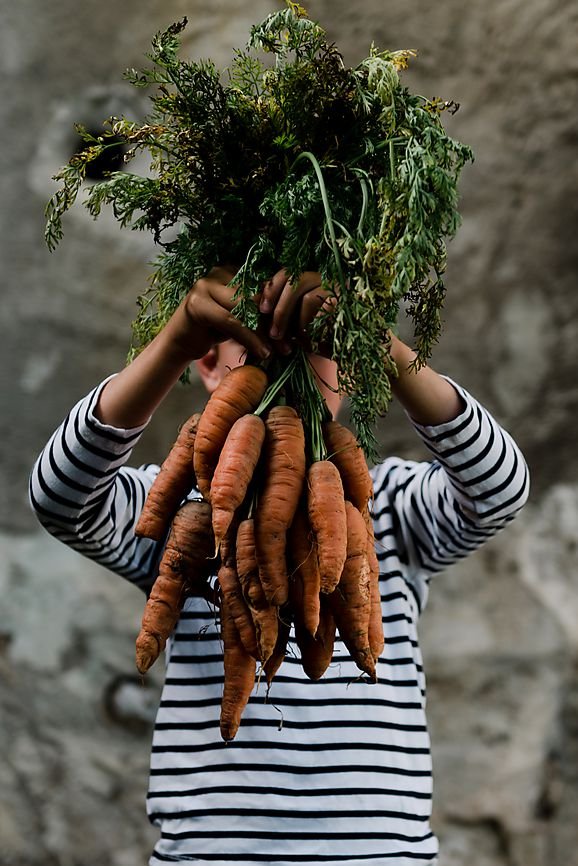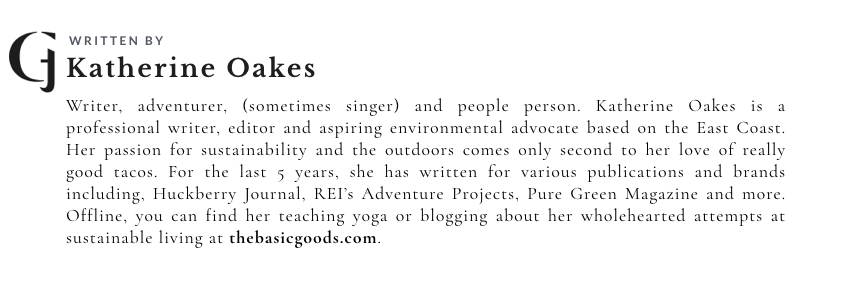
The Ecological Balance Of Organic Food: Behind The Scenes With An Organic Farmer
Organic & Local Food From A Real Life Perspective
In bold and unapologetic letters on their website, New Country Organics farm in Virginia proudly states, “We are all organic. Organic doesn’t mean trendy or cool or pretentious. Organic doesn’t have to mean expensive. Organic simply means living in ecological balance. Living real life. Real life sustained by real food.”
As a team of dedicated organic growers, New Country Organics is passionate about educating people on the farming practices that allow us to enjoy a healthy and sustainable planet, produce and people. I was lucky enough to talk to one of their team members, Bill Ahrens, about what exactly organic means to them as a small-scale organic farm and what they think we should know as conscious consumers.
What inspires you to practice only sustainable methods?
One of the things we love about organics is that it has outright prohibitions against the use of pesticides, herbicides and chemical fertilizers. I spend a lot of my time trying to explain what organic is as opposed to what is now the reality that we consume chemical food. Our culture tends to rely on this idea that food is inherently good. However, today, there are so many chemicals being used not only in GMO products like soy, corn and wheat but also in conventional farming and non-GMO farming. We’ve been taught that as humans we can tolerate these minute qualities of chemicals, but unfortunately we can’t.
How do you convey the far-reaching impacts and importance of organic to consumers?
“Your gut health is directly tied to the soil health of the food you eat. All life is symbiotic – the idea is that you are not alone.”
When we talk about what does it mean to be organic, we sometimes have these conversations where we say, you as a human are made up of trillions of cells, but you are also hosting even more trillions of other cells. We often say, you are a planetoid. Like our earth, you yourself are populated with trillions of creatures. You actually rely intimately on those microorganisms for your own health, and your gut health is directly tied to the soil health of the food you eat. All life is symbiotic – the idea is that you are not alone.
Is there anything about organic farming that people don’t know that you think they should learn more about?
It’s all about the soil. If you are eating food (or livestock) that’s come from healthy, non-toxified soil then your gut bacteria is also healthy and vibrant. It is a diverse biome that is not stripped down or compromised in any way. It’s biodiverse. That’s an aspect of organics you don’t hear about so much – you here about all the things you can’t do with organics, as in pesticides and GMOs, but there are also positive things that farmers have to show they do, like increasing the biodiversity of farms. They actually have to prove they are doing that. You are creating an environment that has its own immune system, so to speak.
Would you say that healthy and biodiverse soil is exactly what we need to be healthy and sustainable, as well?
“We’ve lost our connection to food. We’ve isolated ourselves from the natural environment and we need to reconnect.”
Yeah. We’ve lost our connection to food. We’ve isolated ourselves from the natural environment and we need to reconnect. So many people don’t know where our food comes from, they think it comes from the grocery store. A good number of our clients are trying to break their addiction to the grocery store and reading an ingredients list to see if it’s safe to eat or not.
Do you believe the local, organic food movement can truly replace our current agricultural climate?
I think the millennial generation is more keenly aware of organics and the degree to which real food has been marketed out of existence. Most of us here at New Country Organics are aware of this and farm our own organic food but it’s difficult in other areas. It’s easier to grow it in your own backyard or in a community of people who know where to go. We’re seeing it really take off and watching organics grow much faster than conventional food, although it’s still a baby. The demand is growing so quickly that U.S. farmers are having difficulty keeping up.
In what ways do you think community plays a role in the organic food movement?
There’s your own personal health, the health of your family – including your pets and animals, but then, fundamentally, there’s the health of your neighbors. It actually means having a deep sense of compassion that allows you to be concerned about the health of your neighbors.
Maybe this is a fringe benefit but I know I eat better-tasting food than most people! That is something I share with other people who love food and only want to use the best ingredients.
“[Eating local and organic] means having a deep sense of compassion that allows you to be concerned about the health of your neighbors. ”
